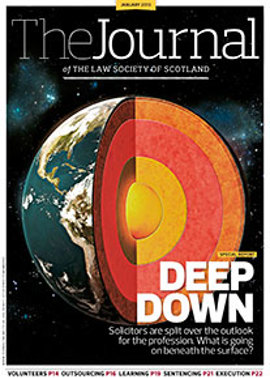Copyright and collaboration: a dose of bad medicine?
As with many large organisations, education institutions often enter into a variety of collaborative agreements. The recent English case of Wilkinson v London Strategic Health Authority [2012] EWPCC 48 is a valuable aide-mémoire that intellectual property rights should always be carefully considered before entering into any such agreements.
Background
Dr Susan Wilkinson had developed a communication skills programme called the "Wilkinson Variant", intended for use in hospitals to assist nurses in communicating with cancer patients. In 2002, the Wilkinson Variant, together with two other variants Fallowfield and Maguire, made a successful joint bid for an NHS cancer project. These variants were used to create a training programme for health professionals within NHS England to help their communication skills with patients who were diagnosed with cancer or were terminally ill. Under a written agreement, Dr Wilkinson created a set of training materials for use by the London Strategic Health Authority (LSHA).
Dispute
A dispute arose concerning copyright ownership in the programme training materials between Dr Wilkinson and LSHA, after LSHA produced materials that contained much of Dr Wilkinson’s “established works”, material from works that she had created as a PhD student and in respect of which she already owned the copyright.
In terms of clause 6.6 of the agreement between the parties, "all intellectual property rights associated with any intellectual property arising from the performance of the services and the documents and other work prepared by [Dr Wilkinson] pursuant to this Agreement shall belong to [the LSHA]".
Dr Wilkinson’s position was that she had not surrendered her intellectual property rights in her earlier work and remained free to use and license the Wilkinson Variant. She claimed that the extracts reproduced in the LSHA training programme had been incorporated pursuant to an implied licence, but that licence was limited to the purposes of the training programme for NHS England. However, the LSHA argued that in terms of clause 6.6 of their agreement, Dr Wilkinson had assigned the copyright in her earlier work and did not accept that she had any right to limit its exploitation.
Judgment
The Patents County Court determined that the LSHA had an implied licence in respect of the reproduced material and could therefore exploit its copyright in the new material as it saw fit, without limitation or having to pay royalties for such use. The court also found that Dr Wilkinson was free to exploit her Wilkinson Variant as she saw fit, because she had not surrendered the copyright in it.
Comment
Although the agreement between Dr Wilkinson and LSHA did not constitute an assignation of rights, it seems that this was still a victory for LSHA as it was permitted to use, develop and distribute the Wilkinson Variant in its materials. This case highlights how important it is, when copyright works are commissioned, to provide clearly in the agreement who owns the copyright in which works and what rights each party has in respect of using and exploiting the work. The courts are generally reluctant to allow the assignation of rights unless there is express agreement between the parties that it is their clear intention to do so, as this case illustrates.
In this issue
- Off on the wrong track
- Cadder, EU style
- Common grazing shares – where are we now?
- Is it time to stop baffling our clients/customers?
- Copyright and collaboration: a dose of bad medicine?
- Reading for pleasure
- Opinion column: Ken McCracken
- Book reviews
- Council profile
- President's column
- New build: new process
- Up or down? Digging deeper
- Who volunteers to be discriminated against?
- What's your LPO strategy for 2013?
- Tailored to suit
- Perfect storm less than appealing
- Separate but legal
- In and out of court
- Coming to a court near you
- Which way will the wind blow?
- Entitled to be aggrieved
- Funds less restricted
- Statement or Budget?
- Local leg-up
- Scottish Solicitors' Discipline Tribunal
- Answering for error
- The other alternative
- Remoteness and risk
- Paralegal Scheme extended
- Proposed rule change
- Law reform roundup
- An innocent loan or questionable funds?
- Ask Ash






